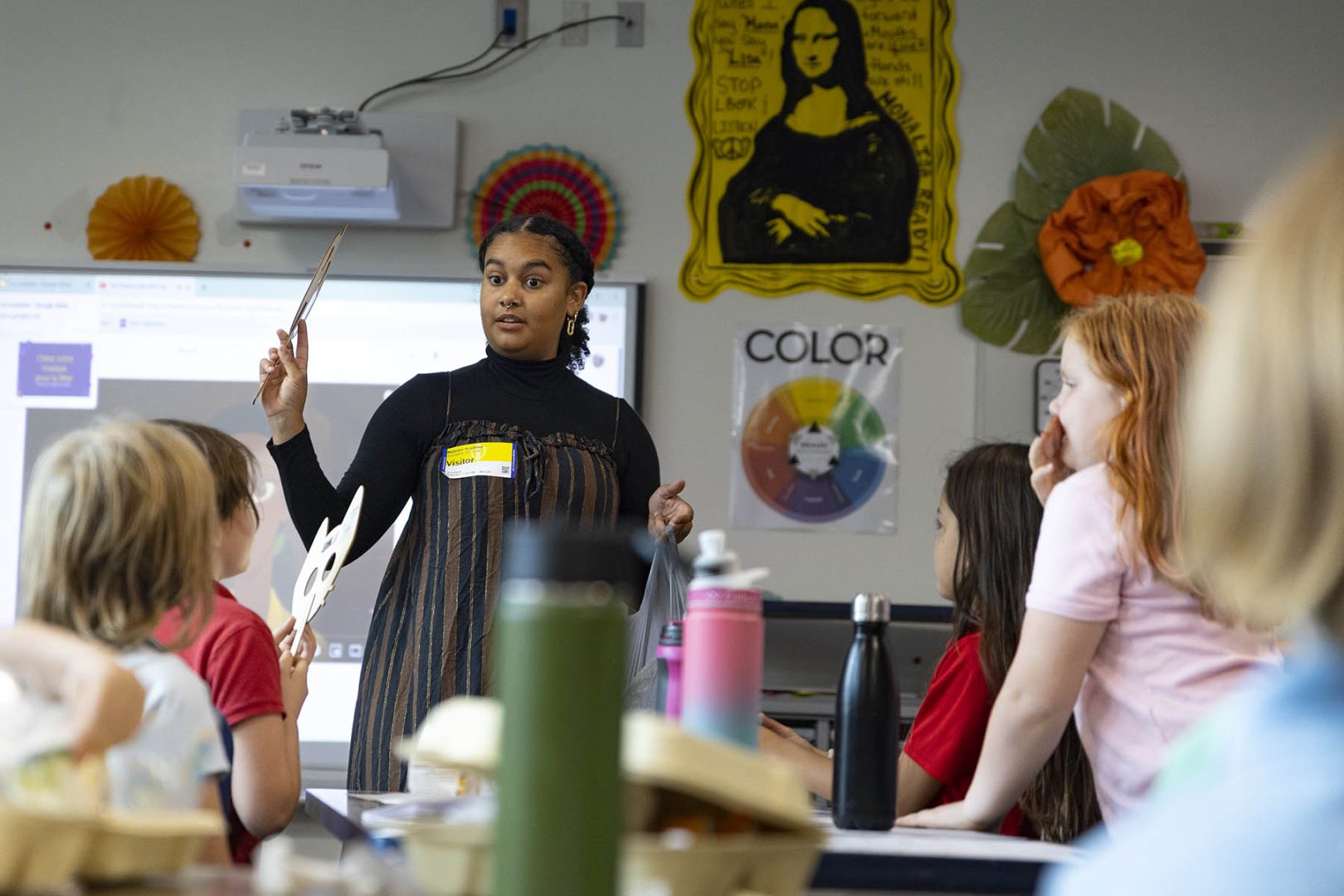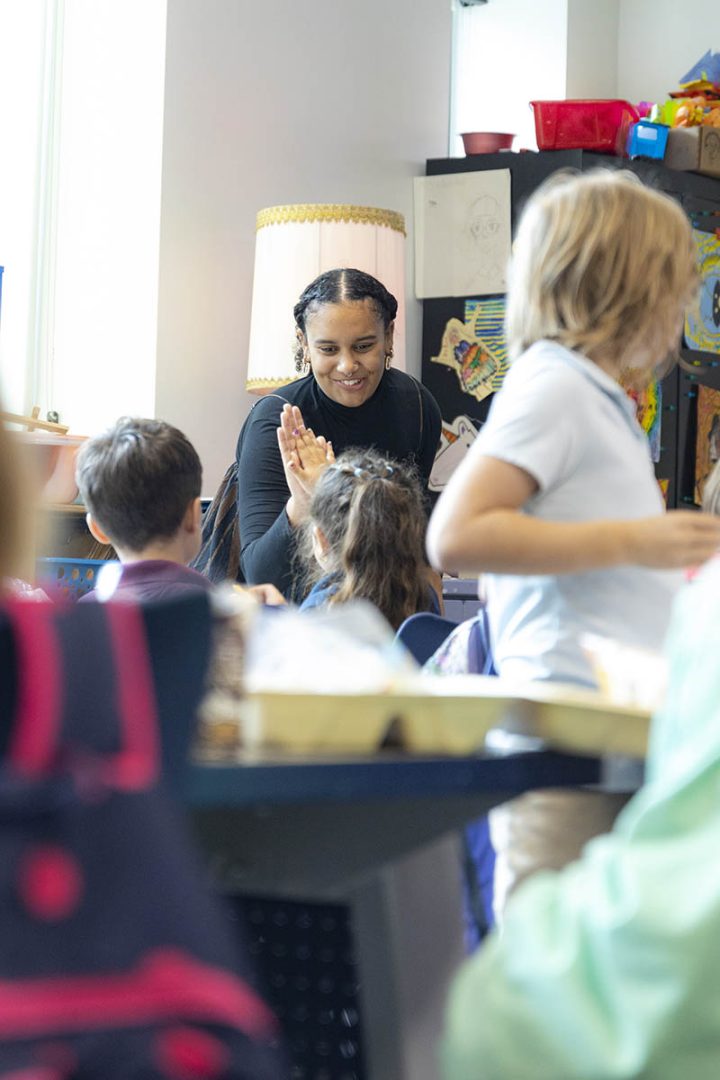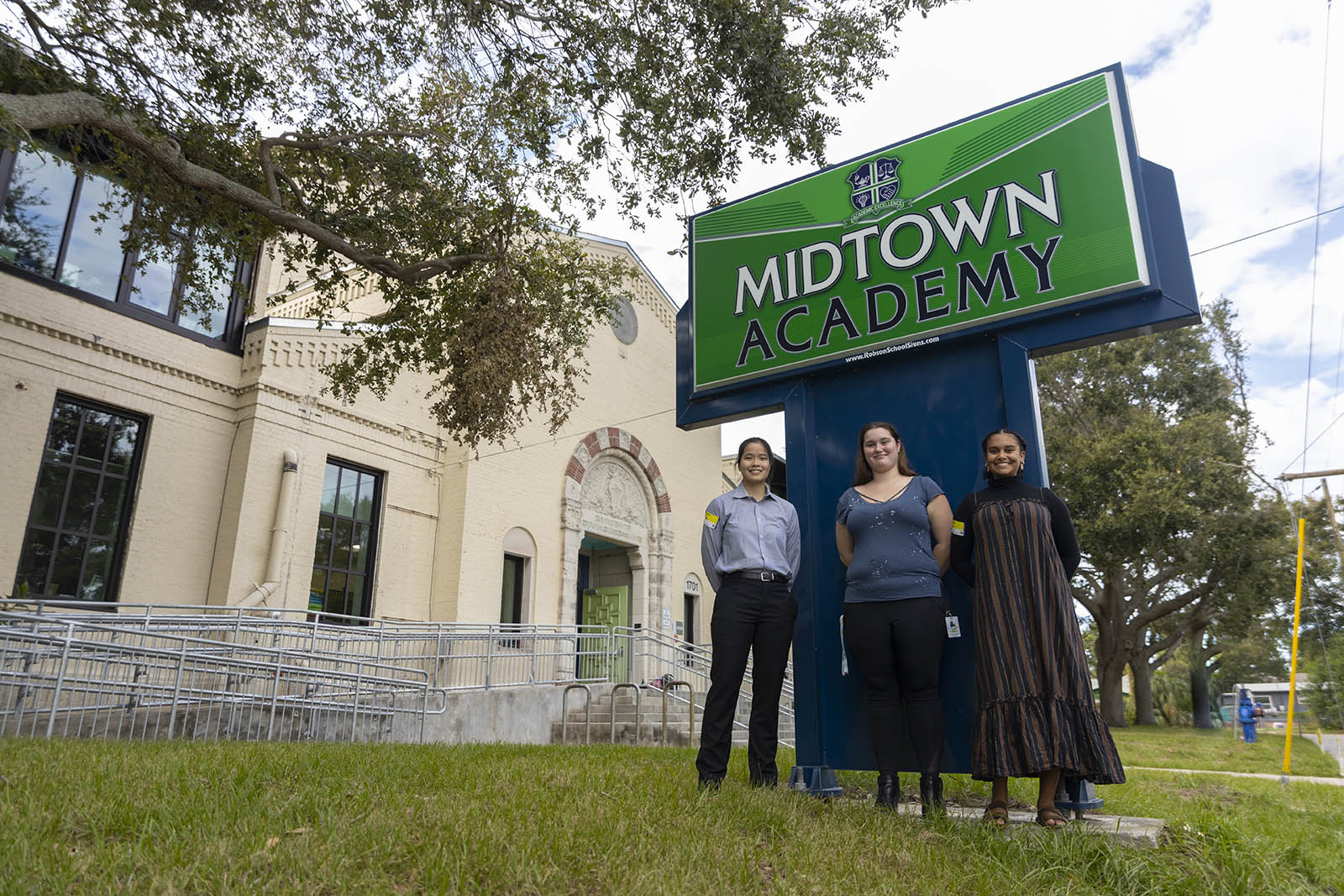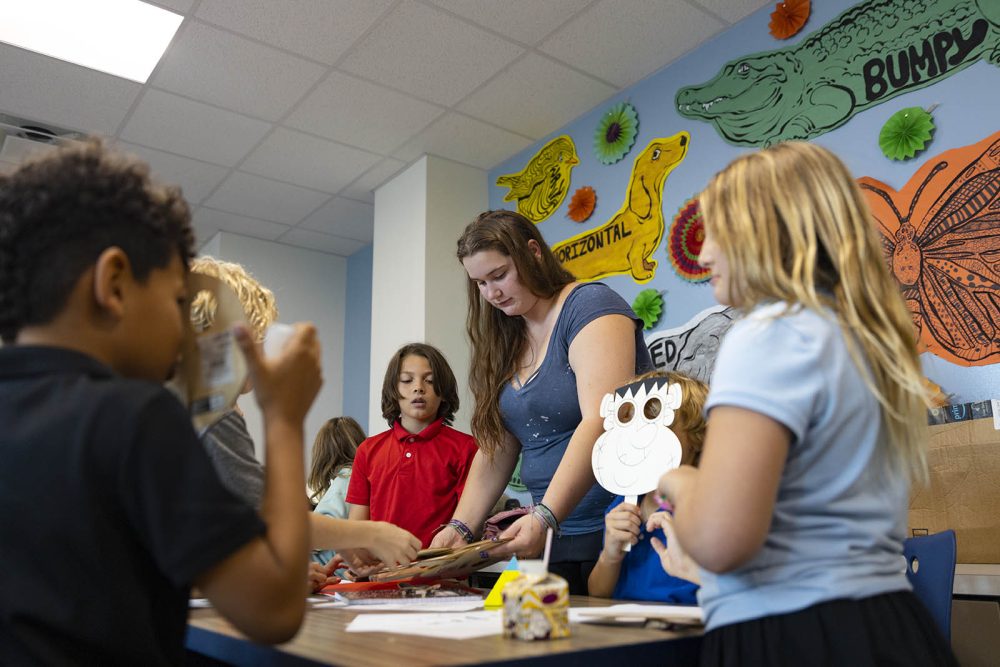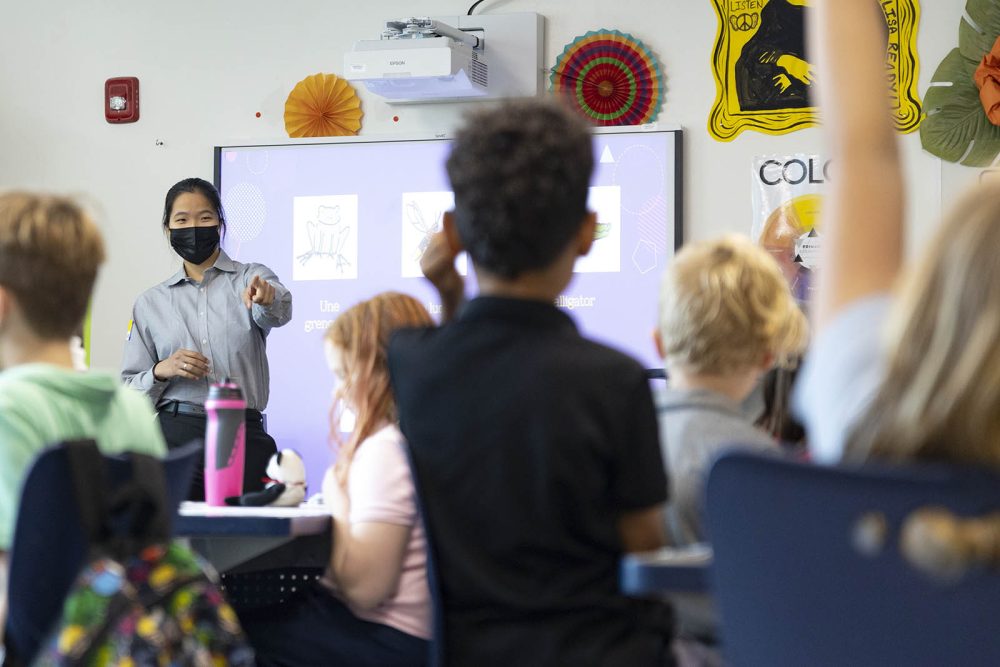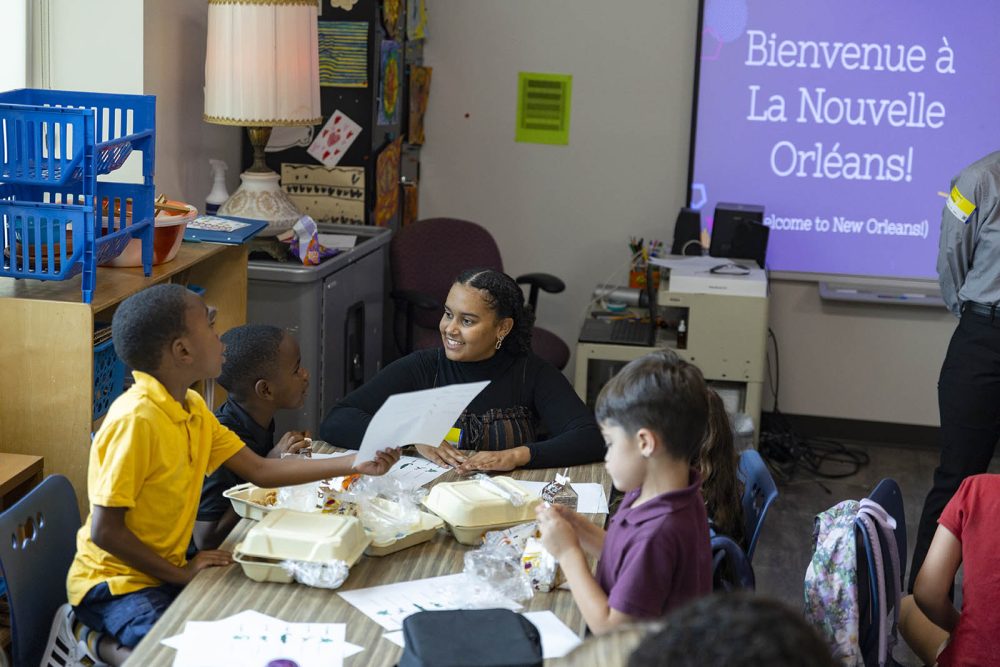It was a teacher’s nightmare. Twenty-five elementary school children were crowded in Midtown Academy’s hallway, locked out of their classroom on a recent Monday afternoon. As the minutes ticked by, the students started getting antsy. “I’m tired,” one child grumbled. “Aren’t we all?” replied another.
Eckerd College junior Ava McLeod, a marine science and French major from Wylie,Texas, sensed an opportunity. “Okay, everybody line up against the wall, sit down and let’s count to 20 in French,” she said. The students settled in and got to “dix” (ten) when a plant operator arrived with the keys.
The students hurried into Room R-121 for what has become one of the most popular clubs at Midtown Academy—the French Club, hosted by three Eckerd College students—Ava, along with Breanna Muldowney, a senior chemistry and French student from Plant City, Florida, and YuHan Burgess, a senior computer science student from Bonita Springs, Florida. YuHan also is a Ford Scholar, and Ava is an Eastman Leader, a former Eckerd College Organization of Students president, and currently vice president of the Eckerd College Afro American Society.
Every Monday after classes at Midtown end, around two dozen students head to the club, where they learn about French language and culture. The Midtown Academy Center for Cultural Arts, Gifted Studies and Literacy Innovation is a K-5 Title 1 public elementary school in St. Petersburg with an enrollment of about 300 students—almost half of whom identify as other than white.
Three years ago, Kathryn Bastin, Ph.D., assistant professor of French at Eckerd College, approached Midtown administrators with an idea. “My children go there,” she explains, “and I just casually asked one day if they would like my Eckerd students to come in and offer a French Club. They were very amiable. And not much later, they asked if we could make it a regular thing. I said we’d very much like that.”
The program began in the spring of 2020, just as the pandemic was ramping up. “That meant learning was switched from in-person to Zoom,” Bastin says. “Still, the program was a hit with students and their parents.”
Bastin carefully selects the three Eckerd students who will lead the club each year, looking for students with an interest in teaching. Her group in 2020–2021 included two Eckerd students who later graduated and entered the Teaching Assistant Program in France—Maxine Bartu ’21 and Michele Chaky ’21, who taught English to French students.
This year’s group is special, Bastin says. “They each have their own unique contributions. YuHan, for instance, shows how French is spoken in other areas of the world. They teach the children numbers and the days of the week, and they also get input about French culture and history. The [Eckerd] students made folders for each child that included French-to-English coloring books. They also get weekly worksheets, and that gets parents involved. At the end of the semester, the children sing songs in French at a recital in school. I’m so lucky to work with such wonderful students.”
Midtown principal Keila Victor also is a fan. “I love having the Eckerd students here,” she says. “Dr. Bastin and her program have been such an asset to the school. And really, it’s a benefit to both parties.”
Bastin says she thinks Ava, Breanna and YuHan have surprised even themselves with what they’re accomplishing. “I had a vague idea of how it was going to be,” says Breanna. “But after the first day … I always respected teachers, but now I have an even higher level of respect for them. It’s such a good outreach activity with the community, and it helps strengthen the bonds.
“That’s why we want to keep it going, and make sure the next Eckerd students have a step to step on,” she adds. “We’ve gotten a ton of positive feedback from the parents about how their child loves the class, or how they’ve learned all these French words. It just makes us tremendously happy that everyone is enjoying their time.”
“I don’t want to be an educator,” Ava says, “but I thought I could bring something valuable and new to the children—expose them to a new language. And I wanted to see if I could handle it and grow as a person. It’s definitely helped me be more comfortable outside my comfort zone. I didn’t realize how willing to learn the children can be. And how strong they can be. The resiliency of these children has made itself clear to me.”
“And they understand what we’re doing,” adds YuHan. “They’re grateful to see college students come in and help them learn. Learning another language is very important because it gives an opening to understanding other people who have a different background than we do. You can walk a step in their shoes.”





